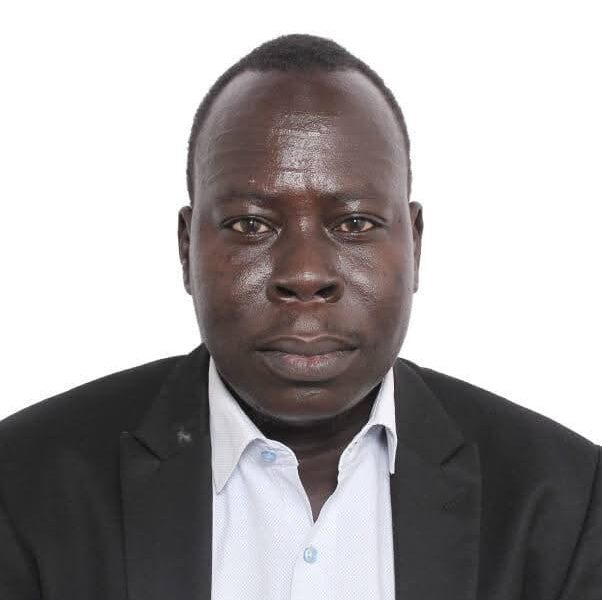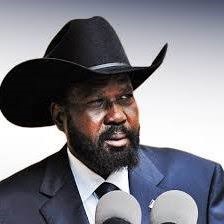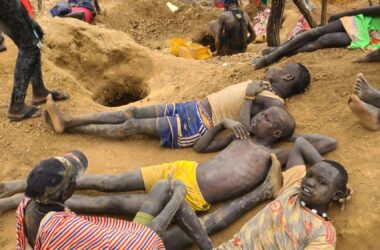By Yiep Joseph
As the world observes the International Day for the Elimination of Sexual Violence in Conflict today, members of civil society have called on South Sudan government to end gender-based violence (GBV).
In an interview, Ter Manyang, the Executive Director of the Center for Peace and Advocacy (CPA), urged the government to double its efforts in ending all forms of gender-based violence.
Each year on June 19, the world observes the International Day for the Elimination of Sexual Violence in Conflict, a day dedicated to raising awareness about the devastating impact of conflict-related sexual violence and to honoring survivors and those who continue to fight for justice and protection.
In honor of the day, Ter emphasized the need for the government to intensify efforts to combat sexual violence.
He stated that the country continues to grapple with high rates of GBV, particularly against women and girls, fueled by harmful cultural norms, entrenched gender inequality, and prolonged conflict.
“South Sudan remains one of the countries where gender-based violence is alarmingly widespread. Deep-rooted cultural perceptions contribute significantly to the normalization of violence, especially against women and girls. We must challenge and change these beliefs,” he appealed.
The activist called for an inclusive approach to addressing gender-based violence and sexual violence, noting that boys and men can also be victims of GBV.
Ter outlined key steps for the government, civil society, traditional leaders, and the international community to work together to end sexual violence in the country.
According to civil society activists, there is a need to strengthen legal frameworks and enforcement mechanisms to protect survivors and hold perpetrators accountable.
Other measures include providing accessible and survivor-centered support services, such as medical, psychosocial, and legal aid.
Ter emphasized the importance of promoting gender equality through education and community engagement and working collectively to dismantle harmful norms that perpetuate violence.
“On this day of reflection and commitment, CPA stands in solidarity with all survivors of sexual violence and reaffirms its dedication to building a society free from gender-based violence,” he said.
On his part, Edmund Yakani, the Executive Director for the Community Empowerment for Progress Organization (CEPO), called on the South Sudan government to double its efforts in ending sexual violence.
He added that due to the ongoing conflict between the South Sudan People’s Defense Forces (SSPDF) and the Sudan People’s Liberation Movement in Opposition (SPLM-IO), there have been reports of sexual violence.
Yakani urged all parties in conflict, as well as the public, to cease all forms of violence, including sexual violence.
“I would like to call upon every commander of forces in the government and in the armed opposition to ensure that your soldiers abstain from sexual violence during confrontations and do not take advantage of the violence to commit sexual acts against civilians,” he said.
He appealed to the government to ensure that those found guilty of committing sexual violence are held accountable.
“We are calling upon the leadership of the South Sudan People’s Defense Forces (SSPDF), particularly the Chief of Defense Forces, to ensure that soldiers who commit sexual violence or any human rights violations are held accountable,” he said.
Yakani reaffirmed civil society’s commitment to exposing cases of gender violence as well as sexual violence in the country.
Addressing Sexual Violence in South Sudan
Sexual violence is a widespread and serious humanitarian concern in South Sudan. Over a decade of conflict and intercommunal violence has led to the normalization of sexual violence among both armed groups and civilians.
It has also reinforced preexisting harmful social norms that lead to victim-blaming.
Stigma, including rejection by family, divorce, and isolation from the community, are key reasons most victims and survivors fear seeking help.
This, in turn, causes delays in accessing necessary care and exacerbates many long-term consequences for victims and their families, including children being born as a result of rape.
The lack of knowledge and very few safe and accessible services in conflict-affected areas further complicate survivors’ access to lifesaving care.
The eruption of conflict in Sudan in 2023, which led to a high influx of refugees and returnees, also resulted in an increased number of survivors struggling to access the already limited services.




